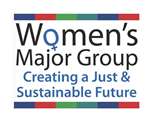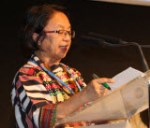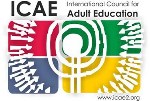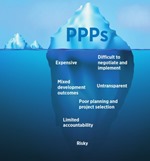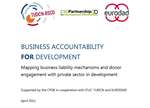Other news
Published on Fri, 2015-10-02 10:26
A rare sense of euphoria permeated the adoption of the 2030 Agenda and the Sustainable Development Goals (SDGs) in New York this weekend. The multitude of events that have been taking place on First Avenue and beyond had a party atmosphere. And it was not only government delegates but many civil society activists who negotiated for systemic change that celebrated the new agenda that promises transformative change for sustainable development. Yet will implementation actually bring real change?
|
Published on Sat, 2015-09-26 00:00
The Women’s Major Group, bringing together over 600 national and international women’s CSOs, continues to be actively engaged in the 2030 Agenda for Sustainable Development. They want to contribute to the success of the 2030 Agenda, and the implementation of the Sustainable Development Goals in all countries, and help achieve real transformative change towards gender equality, human rights, and responsible and equitable stewardship of the earth’s climate and natural resources. In that sense of a constructive contribution by the women’s organisations. They expressed that although it is good that many different people have become engaged in spreading the word about the 2030 Agenda and the 17 SDGs, the group we call on leadership from the UN to avoid trivialization and over-‐simplification in the main messages to the public. The need to maintain integrity and forward momentum of the SDGs in substance and scope in all messages coming from the UN.
|
Published on Fri, 2015-09-25 09:20
Indigenous women and girls experience complex, multi-dimensional and mutually reinforcing human rights violations, with abuses of their collective, economic, social and cultural, as well as civil and political rights being varied and severe.
This is one of the main findings of the report of the Special Rapporteur on the rights of indigenous peoples, Ms Victoria Tauli-Corpuz, to the Human Rights Council, which is currently holding its regular thirtieth session.
|
Published on Fri, 2015-09-25 08:54
Leaders of United Nation Member States are set to endorse the Post-2015 Sustainable Development Framework (now to be called the 2030 Agenda for Sustainable Development) at the General Assembly on 25-27 September 2015. Following what has been a long and at times arduous process to develop and agree this framework, throughout which the Trade Union movement has been actively engaged, the Post-2015 Summit in September will no doubt go down as an historic event. There are definitely grounds for celebration, not least simply because an agreement was actually reached, signalling a win for multilateralism on the whole, but also because it represents the culmination of one of the most inclusive efforts by governments to include the voices of civil societies and other non-state, non-executive actors in an international agreement. It would be fair to say that this is reflected in the level of ambition achieved in key parts of the outcome. Nevertheless, some reservations and concerns remain.
|
Published on Fri, 2015-09-25 08:31
LDC Watch has released a statement addressing the Post-2015 Summit on 25-27 September 2015 in New York, which will adopt the post-2015 development agenda comprising a set of 17 sustainable development goals (SDGs) with a timeline until 2030.
We have expressed grave concerns over the outcome document “Transforming Our World – the 2030 Agenda for Sustainable Development” especially about Means of Implementation and Global Partnership which is key to achieving the post-2015 development agenda. We have reiterated our campaign call 'NO SDGs without LDCs'!
|
Published on Tue, 2015-09-01 14:45
After a long process of negotiation since the 2012 Conference for Sustainable Development – Rio+20, the Outcome Document for the upcoming UN Summit to adopt the post-2015 development agenda, was agreed by consensus at UN headquarters in New York on August 1st, 2015.
This final text, titled Transforming Our World: The 2030 Agenda for Sustainable Development, presents a political declaration and a set of 17 Sustainable Development Goals (SDGs) and 169 targets in the search to overcome poverty and for a sustainable future for all mankind. As opposed to the Millennium Development Goals, the former international development framework, the SDGs were built in an open debate with the participation of not only UN agencies and governments, but also civil society and other stakeholders.
|
Published on Thu, 2015-08-13 15:21
The UN has published the final outcome document for the 2030 Agenda for Sustainable Development to be officially adopted at a UN Summit on September 25-27, 2015 in New York. The Agenda sets out the aims of the organization and all its members for the coming 15 years in the fields of social development, curbing equalities, economic progress and environmental sustainability. If taken seriously, the 2030 Agenda will require profound changes in policies as well as governance and has the potential to shape debates in each and every country around the world for years to come.
|
Published on Wed, 2015-08-12 00:00
A United Nations committee has adopted a set of nine principles for sovereign debt restructuring after two years of deliberations. A report will now be submitted to the UN General Assembly for its review and action.
The adoption of the Principles on Sovereign Debt Restructuring Processes is timely, as more countries are facing or are in danger of facing sovereign debt crises, and the need for and terms of restructuring their debts have become urgent and often controversial topics.
The nine principles were agreed to at the third working session of the Ad Hoc Committee on Sovereign Debt Restructuring Processes on 27-28 July held at the UN headquarters in New York. They will be part of the Chair's summary to be submitted to the UN General Assembly.
|
Published on Tue, 2015-07-07 15:00
A new report launched by Eurodad examining public private partnerships (PPPs) as a way to finance development projects finds that they are risky and expensive and urges governments and financial institutions to stop hiding their true costs. The research finds that public private partnerships are expensive, risky and lack transparency.
What lies beneath?: A critical assessment of public private partnerships and their impact on sustainable development examines the nature and impact of PPPs ahead of the landmark Financing for Development (FfD) conference in Addis Ababa next week (13-16 July). It analyses existing literature on PPPs and the experiences of Tanzania and Peru, based on the findings of the networks Afrodad and Latindadd.
|
Published on Wed, 2015-06-10 19:30
How can we ensure that business – in particular multinational enterprises (MNEs) – really contribute to development in the countries where they operate? How can responsibility of their actions be granted against development impacts? How to keep them accountable for spending public money? These seem quite immediate questions. However, they still need to be answered.
|

|


